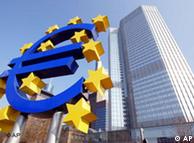 | UN central compound hit in Gaza
Israel's military has shelled the main United Nations compound in Gaza. The director of the UN Relief and Works Agency, John Ging, said the bombing injured three workers and set alight thousands of tonnes of food aid. UN Secretary General Ban Ki-moon said he was outraged by the attack, and told Israeli leaders that the death toll in Gaza had reached “unbearable” proportions. Israel's Defence Minister Ehud Barak apologised for the attack. Meanwhile, fighting is escalating with Israeli forces pushing deeper into the Palestinian territory's urban areas. Over 1,000 people have been killed and 5,000 injured in Israel's offensive against Hamas. Israeli radio says seven rockets fired by Palestinian militants struck Israeli territory early on Thursday. So far, 13 Israelis have been killed since the offensive began, including 10 soldiers. |  |  | Diplomatic efforts to end Gaza conflict stepped up
The UN General Assembly is set to hold an emergency session to press for a ceasefire in the Gaza Strip even as UN chief Ban Ki-moon continues his mediation tour of the Middle East. German Foreign Minister Frank-Walter Steinmeier, who's also touring the region, said in Tel Aviv after meeting Israeli leaders including President Shimon Peres, that the pictures from Gaza continue to be worrying. He will later visit the Palestinian President Mahmud Abbas in Ramallah before travelling on to Cairo. Meanwhile, Egypt is continuing its bid to convince Israel to sign on to its ceasefire plan, a day after securing a conditional commitment from the Palestininan militant group Hamas, which runs Gaza. Saudi Arabia has also called for an emergency meeting of Gulf countries in the capital Riyadh this Thursday. |  |  | Ukraine, EU agree to Russian gas summit
German Chancellor Angela Merkel has warned Russia that it is in danger of losing its credibility as an energy supplier due to the current gas dispute with Ukraine. Merkel added that she would take up the issue in a meeting with Russian Prime Minister Vladimir Putin in Berlin on Friday. Meanwhile, the European Union has accepted an invitation to a gas summit in Moscow on Saturday to help resolve the dispute. Ukraine's Prime Minister Yulia Tymoshenko will also attend, after initially objecting to the Russian venue. She is expected to hold direct talks with her Russian counterpart Vladimir Putin. An EU-brokered deal between Russia and Ukraine unravelled on Tuesday. Hundreds of thousands of people remain without heating in many European countries, especially in the Balkans. |  |  | ECB cuts rates to 2%
The European Central Bank has cut its interest rates by half a percentage point to two percent. The move, which is in line with expectations, matches the bank's lowest ever rate. With fears of a global recession spreading, central banks around the world have slashed the cost of borrowing, however the ECB's rate is still relatively high compared to an almost zero percent rate in the United States and Japan. |  |  | UN Council authorises force for Chad
The United Nations Security Council has authorised a 5,200-strong peacekeeping force in eastern Chad and the Central African Republic. It is to take over on March 15 from European Union troops who have been there for the past year. The UN force is to protect endangered civilians, improve security and facilitate aid deliveries. The region has been seriously affected by fighting in neigbouring Sudan's Darfur region, and rebel activity and banditry are rife. Almost 300,000 people from Darfur have taken refuge in Chad, creating a humanitarian crisis. |  |  | Zimbabwe's Tsvangirai says will meet with Mugabe
Zimbabwe opposition leader Morgan Tsvangirai has said he will meet President Robert Mugabe next week to discuss the stalled power-sharing deal signed in September last year. He told a news conference in Johannesburg that he was committed to forming a new inclusive government, but demanded the release of detained activists as a condition for implementing it. Tsvangirai said he would return to Zimbabwe on Saturday for the first time since November last year. Talks on a power-sharing government stalled amid a dispute over the control of key ministries and the abduction of several opposition and human rights activists. |  |  | Airbus warns of bad year ahead
The head of European planemaker Airbus, Thomas Enders, has warned of "a horrible year ahead" for airlines and the aviation industry. He said the global economic crisis would sharply reduce demand for flights. Fuel prices, the recession and the credit squeeze were all contributing to steep declines in orders and deliveries, Enders said. Aircraft orders already dropped 42 percent in 2008. Airbus is expected to get fewer aircraft orders than the number of planes it delivers for the first time since 2003. |  |  | Three Red Cross workers kidnapped in Philippines
Officials in the Philippines say three Red Cross workers have been kidnapped by suspected Muslim rebels on southern Jolo island. The head of the Philippine National Red Cross said the three workers from Italy, Switzerland and the Philippines were travelling to the Jolo airport when they were stopped and taken away by an armed group. Officials said they believed the gunmen were from the Muslim rebel group Abu Sayyaf, which has often kidnapped people, including foreigners, in the past. In 2001, the group beheaded three of twenty hostages they had taken from a luxury resort in the western Philippines. |  |  | |  |

